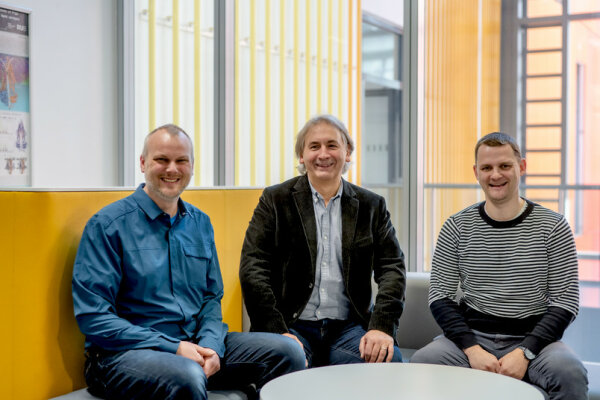11.01.2023

A genetic modification can make enzymes that produce hydrogen more stable.
Certain enzymes from bacteria and algae can produce molecular hydrogen from protons and electrons - one of the energy carriers on which many hopes are based. All they need for this is light energy. The biggest obstacle to their use is that they are destroyed by contact with oxygen. An interdisciplinary research team from the RESOLV cluster of excellence at Ruhr University Bochum has succeeded in genetically modifying a hydrogen-producing enzyme so that it is protected from oxygen. The researchers led by Prof. Dr. Thomas Happe, head of the Photobiotechnology group, Prof. Dr. Lars Schäfer and Prof. Dr. Ulf-Peter Apfel report in the journal ACS Catalysis, December 28, 2022.
A genetic modification can make enzymes that produce hydrogen more stable.
Certain enzymes from bacteria and algae can produce molecular hydrogen from protons and electrons - one of the energy carriers on which many hopes are based. All they need for this is light energy. The biggest obstacle to their use is that they are destroyed by contact with oxygen. An interdisciplinary research team from the RESOLV cluster of excellence at Ruhr University Bochum has succeeded in genetically modifying a hydrogen-producing enzyme so that it is protected from oxygen. The researchers led by Prof. Dr. Thomas Happe, head of the Photobiotechnology group, Prof. Dr. Lars Schäfer and Prof. Dr. Ulf-Peter Apfel report in the journal ACS Catalysis, December 28, 2022.